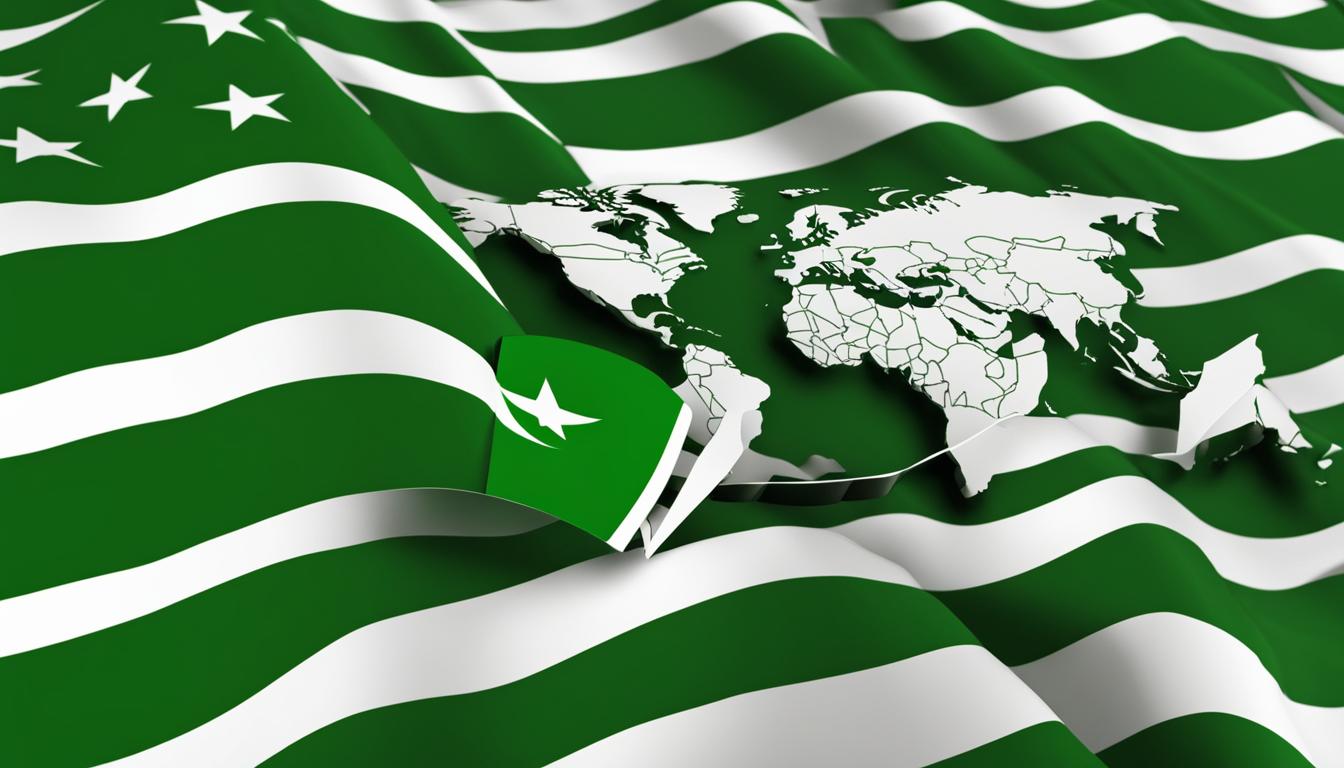Exploring the legal aspects of forex trading in Pakistan unveils a series of regulatory nuances that are essential for investors to understand. With the digital age enabling widespread access to global financial markets, it’s crucial to ask: is forex trading allowed in Pakistan? The answer is multifaceted, carved by the operational infrastructure and adherence to the guidelines set forth by governmental bodies.
In Pakistan, forex trading operates within a complex web of legality. The Securities and Exchange Commission of Pakistan (SECP) provides recommendations for residents to stay updated on regulations, although it does not mandate authorization for forex brokers. The State Bank of Pakistan (SBP) and the Foreign Exchange Regulation Department (FERD) manage physical currency exchanges, delineating a distinction between practical currency exchange services and speculative online forex market investments. The key is to recognize that while forex trading per se is not explicitly prohibited, engaging in it responsibly within the bounds of the law requires due diligence and awareness of the Pakistan forex trading legality framework.
The Current Legal Landscape of Forex Trading in Pakistan
In the realm of finance within Pakistan, the parameters of forex trading are governed by sets of rules and regulations to ensure its orderly conduct. The country’s central and financial authorities, each with distinct roles, collaborate to maintain the integrity and transparency of the forex market.
State Bank of Pakistan’s Regulatory Framework
The State Bank of Pakistan (SBP) upholds the structure of forex trading by stringently overseeing physical transactions. The SBP’s influence extends to money service businesses and banking institutions under the guidance of the Foreign Exchange Regulation Department (FERD), orchestrating the legal flow of physical currency exchanges, critical to both traders and the nation’s economy.
Securities and Exchange Commission of Pakistan (SECP) Overview
The Securities and Exchange Commission of Pakistan (SECP), with its headquarters in Islamabad, has been instrumental since its inception in 1999 in supervising financial market activities. It is pivotal to note that despite its influential position, the SECP stops short of formally licensing forex brokers, thus placing a hefty responsibility on investor due diligence, especially where international forex brokerage is concerned.
Distinguishing Between Physical and Online Currency Exchange
Forex trading regulations in Pakistan draw a definitive line between traditional currency exchange and the speculative nature of online forex market activities. The latter, distinguished by the virtual nature of transactions, provide a playground for numerous international brokers, though they remain outside direct SECP regulation. Pakistani traders are advised to exercise discernment when navigating the global sphere of forex trading, where the distinction between the two forms of currency exchange is stark and necessitates thorough understanding of the industry’s governing principles.
| Aspect | Physical Currency Exchange | Online Forex Trading |
|---|---|---|
| Regulatory Body | State Bank of Pakistan (SBP) | Securities and Exchange Commission of Pakistan (SECP) |
| Primary Focus | Exchanging physical currency for trade and business needs | Speculative trading on currency price movements |
| Location of Transactions | Bank branches & authorized money service businesses | Online platforms with international brokers |
| Licensing of Brokers | Not applicable | No explicit licensing by SECP for forex activities |
| User Verification | Mandatory KYC for transactions | Broker-specific KYC & due diligence |
The intricate fabric of forex trading rules in Pakistan requires traders to align their transactions with the forex trading regulations prevalent in the country. In this multifaceted financial environment, understanding these regulations is the cornerstone to proficient and lawful forex market participation.
International Forex Brokers Operating in Pakistan
As the question of Is forex trading legal in Pakistan continues to garner attention, it’s pivotal to understand the situation surrounding forex trading laws in Pakistan. The nation’s traders pivot toward international brokers who are providing services within the legal frameworks that surround foreign exchange. The table below exhibits some of the top international brokers that have a foothold in the Pakistani forex market, known for stringent regulatory compliance and reliability.
| Broker Name | Regulatory Compliance | Services Offered | Support for Islamic Accounts |
|---|---|---|---|
| IG | FCA, ASIC, CFTC, FINMA | Comprehensive trading platforms, research tools | Yes |
| Interactive Brokers | SEC, FCA, ASIC | Diverse asset classes, low-cost trading | No |
| Saxo Bank | FSA, FCA, ASIC | Premium service, advanced features | Yes |
| AvaTrade | Central Bank of Ireland, ASIC, FSCA, FSA | Multiple trading platforms, fixed spreads | Yes |
| FXTM | CySEC, FCA, FSC | Fast execution, localised services | Yes |
These brokers not only adhere to international regulations but also extend their offerings to support the unique needs of Pakistani traders. The presence of options for Shariah-compliant Islamic accounts illustrates the intersection of global finance and locally observed practices, ensuring the inclusivity of the trading environment.
Understanding the distinction between the Pakistani regulatory environment and that of the international domain where these brokers operate is crucial for local traders. Reliable brokers with substantial international regulation establish trust and legitimacy, enabling Pakistani residents to engage in forex trading within the legal perimeters set forth.
Understanding the Complexities of Forex Trading Legality in Pakistan
The intricacies surrounding the forex trading legality in Pakistan have attracted considerable attention among retail traders and industry watchers alike. To navigate this landscape effectively, it is essential to gain a comprehensive understanding of the pertinent legal nuances, the imperative of regulatory compliance, and the distinct contrasts between regulated and unregulated brokers. Highlighting these elements contributes to a more informed and cautious approach to the forex market in the country.
Legal Nuances for Retail Forex Traders
Retail forex traders in Pakistan must pay heed to specific legalities that govern their trading activities. While forex trading is not inherently illegal, adhering to guidelines provided by the Securities and Exchange Commission of Pakistan (SECP) and the State Bank of Pakistan (SBP) is non-negotiable. Such adherence assures traders their engagement in the forex market is compliant with national financial policies. Understanding these legal nuances helps in minimizing risks associated with non-compliant trading practices.
Significance of Regulatory Compliance
Corporate governance and vigilance are the bulwarks against financial fraud and scams, which sadly pervade unregulated markets. The role of regulatory compliance for those involved in forex trading in Pakistan cannot be overstated. By ensuring that one’s broker of choice adheres to international financial standards and is subject to oversight by credible financial authorities, traders in Pakistan can secure a layer of protection vital in today’s volatile trading environment.
Disparity Between Regulated and Unregulated Brokers
In the domain of forex trading legality in Pakistan, the distinction between regulated and unregulated brokers is stark. Regulated brokers offer a level of trust and security that cannot be matched by their unregulated counterparts. By being accountable to financial authorities, they provide a garanty of transparency and fairness that is essential for traders seeking to make informed decisions. On the other hand, unregulated brokers operate without such assurances, making them a riskier option for traders who prioritize the legal aspects of forex trading in Pakistan.
Comparative Analysis of Forex Trading Laws in Pakistan
The regulatory environment for forex trading in Pakistan is unique and deeply intertwined with the nation’s commitment to Shariah law. An in-depth comparative analysis reveals critical reference points for traders, who must navigate the legality of forex trading in Pakistan while aligning with Islamic financial principles. A prime feature of this legal structure is the provision of Shariah-compliant forex trading options, where brokerage accounts adhere to religious doctrine, eschewing traditional interest mechanisms in favor of permitted practices.
Shariah-Compliant Forex Trading Options
Forex trading in Pakistan carves out space for Shariah-compliant instruments, allowing traders to engage in the forex markets without violating Islamic precepts. Such options are devoid of swap fees and overnight interest, catering to a significant segment of the trading community that wishes to adhere to ethical financial practices as defined by their religious values. This harmonization of religious compliance with financial activities signals the country’s dedication to incorporating faith-based tenets into the framework of forex trading legality.
Role of Pakistani Banks in Forex Trading
The role of Pakistani banks, as overseen by the State Bank of Pakistan, is meticulously delineated to foster a system that promotes legal forex transactions. Local banks operate within clearly defined parameters that encourage legitimate currency exchange, separating authorized banking activities from speculative trading—a domain that demands reliance on international brokers vetted for regulatory compliance.
Legal Forex vs. Illegal Financial Activities
In stark contrast to the acknowledged legal avenues stands the shadowy realm of illegal financial activities—an area devoid of the stringent oversight required to safeguard traders’ interests. The legitimacy of forex trading in Pakistan depends on vigilant adherence to the guidelines prescribed by governing authorities, thereby reinforcing the imperative for traders to engage exclusively with brokers recognized by the Securities and Exchange Commission of Pakistan (SECP) and international regulators. Such prudent partnerships are essential in maintaining adherence to the legality of forex trading within Pakistan.
FAQ
Yes, forex trading is legal in Pakistan, but it operates within a complex legal and regulatory framework. Traders should be aware of the differences between physical and online trading, and ensure they are working with internationally regulated brokers as per the guidance of local regulatory bodies.
The State Bank of Pakistan (SBP) regulates physical currency exchange through authorized banks and money service businesses in accordance with their policies. While it oversees legitimate currency exchanges for practical purposes, online forex trading ventures into a different domain and is not directly regulated by the SBP.
Retail forex traders in Pakistan must navigate a regulatory environment that does not prohibit forex trading but does suggest prudence when selecting a broker. The absence of Pakistan-regulated forex brokers means that traders should work with reliable international brokers who conform to international regulatory requirements.






